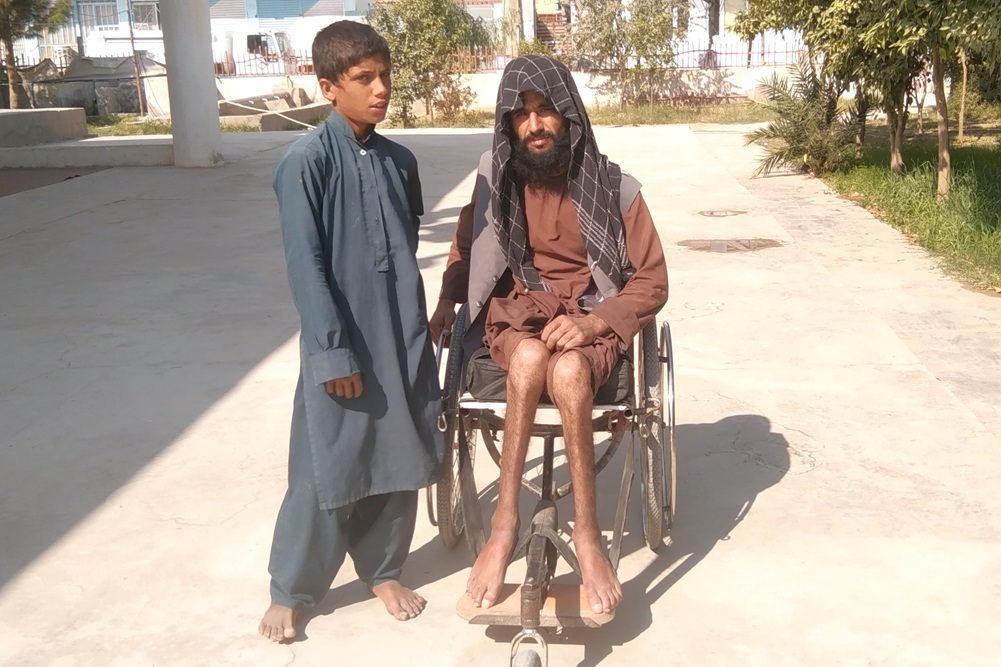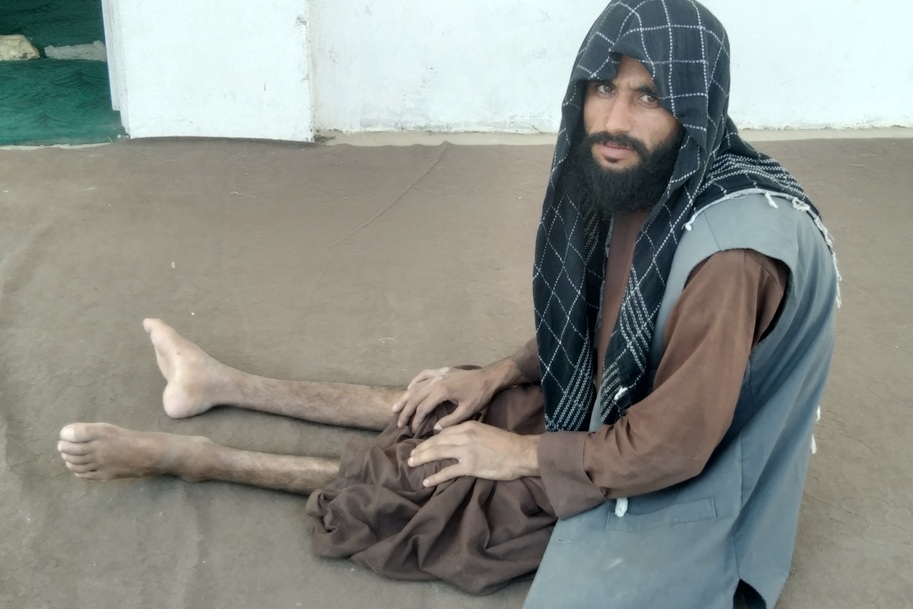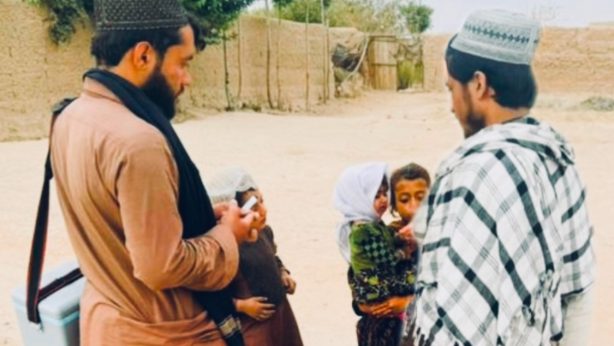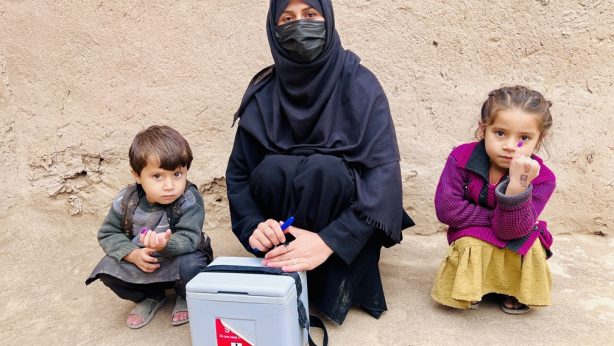Muhammad Ibrahim: A Living Portrait of Polio’s Tragedy

Helmand, Afghanistan – Disability and poverty are two immense challenges that can render a person utterly helpless, pushing them onto a harsh and unforgiving path in life.
This is the story of 32-year-old Mohammad Ibrahim, a resident of the Bolan area in Lashkar Gah, Helmand. He contracted polio at the age of four, which robbed him of the ability to move his legs.
He recounts this tragedy as told by his family elders: “I was four years old when I developed a severe fever. My parents took me to the hospital for treatment, where doctors diagnosed me with polio, a disease that paralyzed both my legs.”
He explains that this event, caused by the lack of vaccination, was a devastating blow for his family.
With sorrow, he shared, “From that day on, my misfortunes began, and all my dreams were shattered.”
Muhammad Ibrahim adds that during his childhood, he longed to walk on his own feet like other children, to play, and to attend school. However, this dream never materialized.
The Bitter Days of Life
Mohammad Ibrahim is now forced to resort to begging to meet his family’s needs—a grueling task that subjects him to immense psychological torment every moment.
He says, “I bear the responsibility of caring for three children—two daughters and a son. Being disabled and unable to work, I extend my hand to others people for help to support them. Although this is a source of immense psychological torture for me, I have no other choice.”
According to him, he strives to the best of his ability for the health and better future of his children and does not want them to face the challenges he endures.
Mohammad Ibrahim also calls on parents to learn from his life and not let their children fall victim to negligence. He urges them to ensure that their children receive vaccinations against polio and other life-threatening diseases during childhood, so they can be protected from disabilities and other adversities and lead healthy lives in the future.
 Mohammad Ibrahim’s story presents us with a vivid portrayal of tragedy, delivering a powerful message: if we neglect to vaccinate our children against polio, this virus will not only paralyze them but also destroy their dreams and aspirations. © Polio Free Afghanistan/ 2024/ Saeed Zabuli
Mohammad Ibrahim’s story presents us with a vivid portrayal of tragedy, delivering a powerful message: if we neglect to vaccinate our children against polio, this virus will not only paralyze them but also destroy their dreams and aspirations. © Polio Free Afghanistan/ 2024/ Saeed Zabuli
The Value of Vaccination: Statements from Leaders and Health Experts
Haji Mahboobullah, a tribal leader from Helmand province, reflecting on Mohammad Ibrahim’s difficult life, states: “Polio doesn’t just cause disability; it also breeds poverty and destitution, as Mohammad Ibrahim’s life vividly demonstrates.”
He adds that if Ibrahim had been vaccinated during childhood, he would not have contracted polio, his legs would not have been paralyzed, and he could have lived a normal life like others.
According to him, unless everyone unites against polio and the administration of vaccines to every child becomes a reality, this disease will continue to threaten the future of the community every single day.
Similarly, a local health expert, Dr. Rahim, states, “Polio is a paralyzing and incurable disease that can only be prevented through vaccination. The polio vaccine guarantees the healthy life of children and the progress of society. If every child is vaccinated, we can protect the community from disability, poverty, and other harms.”
He emphasizes that it is the responsibility of all parents, without exception, to ensure their children receive all necessary childhood vaccinations, including the polio vaccine. This, he says, is the only way to safeguard their future.
An Inspiring Lesson
Mohammad Ibrahim’s story presents us with a vivid portrayal of tragedy, delivering a powerful message: if we neglect to vaccinate our children against polio, this virus will not only paralyze them but also destroy their dreams and aspirations.
Two drops of the polio vaccine during each campaign can save a child’s life and protect them from permanent paralysis.
Let us all come together to fulfill this national and religious duty and create a future for our children where they are free from the grip of this devastating disease.
Saeed Zabuli, Polio Free Afghanistan


